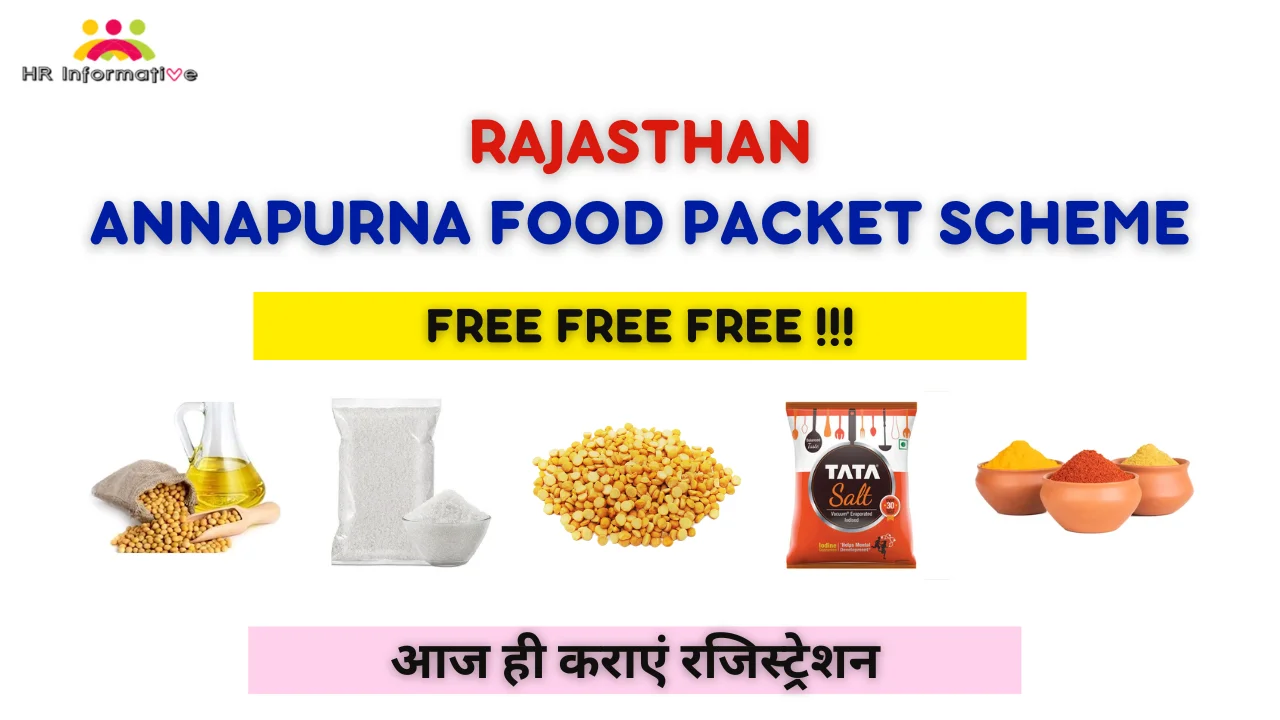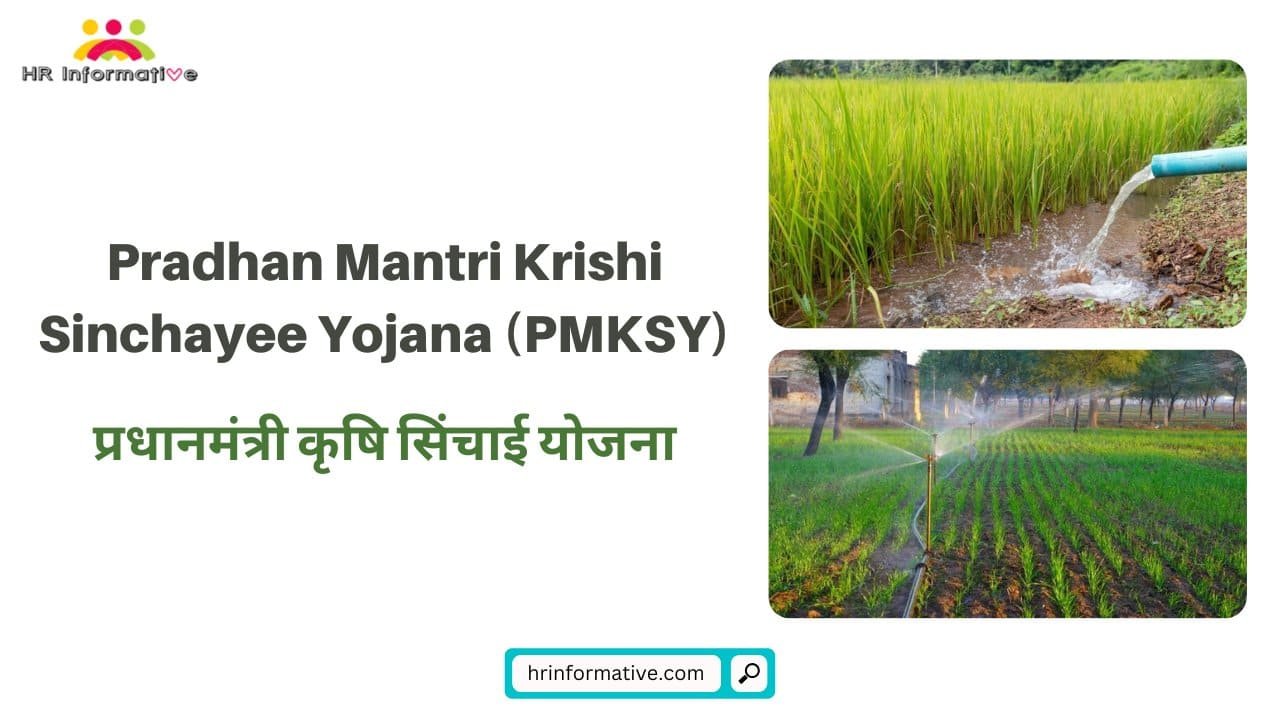Introduction
The Annapurna Food Packet Scheme is a government initiative in Rajasthan that provides free monthly food packets to families covered under the National Food Security Act (NFSA). The scheme was launched by Chief Minister Mr. Ashok Gehlot on 15 August 2023, on the occasion of Independence Day and is expected to benefit over 1.10 crore people.
Highlights
| Scheme Name | Annapurna Food Packet Scheme |
| Applicable State | Rajasthan |
| Launched By | Chief Minister Mr. Ashok Gehlot |
| Launched On | 15 August 2023 |
| Beneficiary | Families Covered Under the National Food Security Act (NFSA) |
| Official Website | food.rajasthan.gov.in |
| Consumer Helpline No. | 1800-180-6030 and 14445 |
Objectives of the Scheme
The main objective of the Annapurna Food Packet Scheme is to provide relief to poor families from the rising prices of food items. The scheme also aims to improve the nutritional status of the people, especially children and women.
The main objectives of the Annapurna Food Packet Scheme are to:
- Provide food security to the poor and vulnerable in Rajasthan.
- Help to mitigate the impact of rising inflation on the poor.
- Promote self-reliance and financial inclusion among the beneficiaries.
Benefits of the Scheme
The Annapurna Food Packet Scheme provides the following benefits to the beneficiaries:
- Free monthly food packets containing essential items such as grams, pulses, sugar, salt, edible oil, and spices.
- A monthly commission of Rs. 10 per packet is distributed to fair price shops (FPSs) to incentivize their participation.
- The scheme is expected to help to improve the nutritional intake of the beneficiaries and reduce their dependence on private markets.
Beneficiaries of the Scheme
The beneficiaries of the scheme are families covered under the National Food Security Act (NFSA). These families include:
- Antyodaya Anna Yojana (AAY) beneficiaries.
- Priority Household (PHH) beneficiaries.
- State Food Security Scheme (SFS) beneficiaries.
- Families that received ₹5,500 pandemic assistance.
- Families identified as poor and destitute by the government.
Contents of the Food Packet
Each food packet contains the following essential items:
- 1 Kg Grams
- 1 Kg Pulses
- 1 Kg Sugar
- 1 Kg Iodized Salt
- 1 Litre of Soybean Refined Edible Oil
- 100 Grams of Chilli Powder
- 100 Grams of Coriander Powder
- 50 Grams of Turmeric Powder
Read Also : Mukhyamantri Chiranjeevi Shramik Sambal Yojana Rajasthan
Distribution of Food Packets
The food packets will be distributed through fair price shops (FPS) every month. The FPS will receive a ₹10 commission per packet distributed.
Budget for the Scheme
The budget for the Annapurna Food Packet Scheme is ₹3,000 crore.
How to Apply for the Scheme
Beneficiaries of the Annapurna Food Packet Scheme can apply for the scheme through their nearest fair price shop (FPS). The FPS will verify the eligibility of the applicant and issue a ration card. The ration card will be used to collect the monthly food packets from the FPS.
Documents Required for the Scheme
The documents required for the Annapurna Food Packet Scheme in Rajasthan are:
- Aadhaar card of the head of the household.
- Ration card of the household.
- Proof of residence (electricity bill, water bill, or any other government-issued document).
- Proof of income (salary slip, pension slip, or any other document).
- In case of a family that has received ₹5,500 pandemic assistance, a copy of the receipt.
- In case of a family that has been identified as poor and destitute by the government, a certificate from the concerned authority.
- Passport Size Photograph
- Mobile Number
Implementation of the Scheme
The Annapurna Food Packet Scheme is being implemented by the Department of Food, Civil Supplies and Consumer Affairs, Rajasthan. The department has set up a dedicated website and helpline to provide information about the scheme. The department is also conducting awareness campaigns to inform the public about the scheme.
Impact of the Scheme
The Annapurna Food Packet Scheme is expected to have a significant impact on the lives of the poor and vulnerable in Rajasthan. The scheme is expected to help to improve the nutritional intake of the beneficiaries, reduce their dependence on private markets, and mitigate the impact of rising inflation. The scheme is also expected to promote self-reliance and financial inclusion among the beneficiaries.
Possible Challenges for the Scheme
The Annapurna Food Packet Scheme in Rajasthan is a welcome initiative by the government to provide food security to the poor and vulnerable. However, the scheme may face some challenges, which are as follows:
- Difficulty in Implementation: The scheme may be difficult to implement in remote areas, where there are fewer fair price shops (FPSs). This could lead to delays in the distribution of food packets and may also result in corruption.
- Shortage of Food Packets: There is a possibility of a shortage of food packets, especially during peak seasons. This could be due to a number of factors, such as a sudden increase in the number of beneficiaries or a delay in the procurement of food items.
- Poor Quality of Food Packets: The quality of the food packets may not be good, which could lead to health problems for the beneficiaries. This could be due to the use of substandard ingredients or poor storage conditions.
- Corruption in Distribution: There is a possibility of corruption in the distribution of food packets. This could involve the diversion of food packets to ineligible beneficiaries or the sale of food packets at a profit.
- Financial Sustainability: The scheme is expected to cost the government around Rs. 3,000 crore annually. This is a significant amount of money, and the government needs to ensure that the scheme is financially sustainable in the long term.
- Political Will: The success of the Annapurna Food Packet Scheme will depend on the political will of the government. The government needs to be committed to providing food security to the poor and vulnerable, and it needs to allocate adequate resources for the scheme.
- Public Awareness: The success of the Annapurna Food Packet Scheme will also depend on public awareness. The beneficiaries need to be aware of the scheme and its benefits, and they need to be willing to participate in the scheme.
The government needs to address these challenges in order to ensure the success of the Annapurna Food Packet Scheme. This could involve measures such as strengthening the monitoring and evaluation mechanism, ensuring the timely procurement of food items, and raising awareness about the scheme among the beneficiaries.
The Annapurna Food Packet Scheme is a promising initiative, but it faces some challenges. The government needs to address these challenges in order to ensure the success of the scheme.
Conclusion
The Annapurna Food Packet Scheme is a welcome initiative by the government of Rajasthan to provide food security to the poor and vulnerable. The scheme is expected to have a positive impact on the lives of the beneficiaries by improving their nutritional intake, reducing their dependence on private markets, and mitigating the impact of rising inflation. However, the scheme may face challenges such as difficulty in implementation, shortage of food packets, poor quality of food packets, and corruption in distribution. Despite these challenges, the Annapurna Food Packet Scheme is a valuable initiative that has the potential to make a real difference in the lives of the poor and vulnerable in Rajasthan.
FAQs
Q: Who are the beneficiaries of the Annapurna Food Packet Scheme?
Ans: The beneficiaries of the Annapurna Food Packet Scheme are families covered under the National Food Security Act (NFSA). These families include Antyodaya Anna Yojana (AAY) beneficiaries, Priority Household (PHH) beneficiaries, State Food Security Scheme (SFS) beneficiaries, families that received ₹5,500 pandemic assistance, and families identified as poor and destitute by the government.
Q: What are the contents of the food packet?
Ans: Each food packet contains the following essential items:
1 kg grams, 1 kg pulses, 1 kg sugar, 1 kg iodized salt, 1 litre soybean refined edible oil, 100 grams chilli powder, 100 grams coriander powder, 50 grams of turmeric powder.
Q: How can I apply for the Annapurna Food Packet Scheme?
Ans: Beneficiaries of the Annapurna Food Packet Scheme can apply for the scheme through their nearest fair price shop (FPS). The FPS will verify the eligibility of the applicant and issue a ration card. The ration card will be used to collect the monthly food packets from the FPS.
Q: Where can I get more information about the Annapurna Food Packet Scheme?
Ans: You can get more information about the Annapurna Food Packet Scheme on the website of the Department of Food, Civil Supplies and Consumer Affairs, Rajasthan: https://food.rajasthan.gov.in/ and the nearest fair price shop (FPS).
Q: What are the challenges faced by the Annapurna Food Packet Scheme?
Ans: The Annapurna Food Packet Scheme may face some challenges, such as:
Difficulty in implementation in remote areas, Shortage of food packets, Poor quality of food packets, Corruption in distribution, Financial sustainability, Political will, and Public awareness. The government needs to address these challenges in order to ensure the success of the scheme.
Q: What are the measures taken by the government to address the challenges of the Annapurna Food Packet Scheme?
Ans: The government is taking steps to address the challenges of the Annapurna Food Packet Scheme, such as:
Strengthening the monitoring and evaluation mechanism, Ensuring the timely procurement of food items, and Raising awareness about the scheme among the beneficiaries.
Q: What is the expected impact of the Annapurna Food Packet Scheme?
Ans: The Annapurna Food Packet Scheme is expected to have a positive impact on the lives of the beneficiaries by improving their nutritional intake, reducing their dependence on private markets, and mitigating the impact of rising inflation.
You May Read Also :
- Rajasthan SSO Portal: A Comprehensive Guide to Login and SSO ID Registration
- Pradhan Mantri Kisan Samman Nidhi (PM-Kisan) Objective, Features, Eligibility, Online Registration
- PMKVY Scheme: Imparting Skill Training for Youth Development in India
- Sukanya Samriddhi Yojana (SSY), Objectives, Eligibility, Benefits and Account Opening



